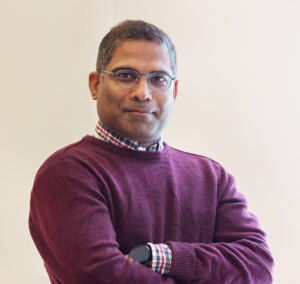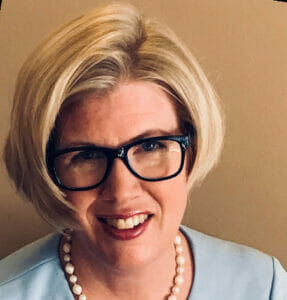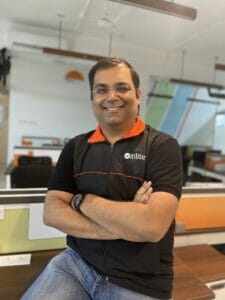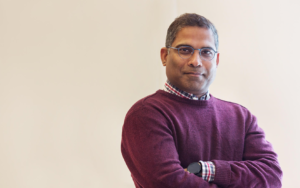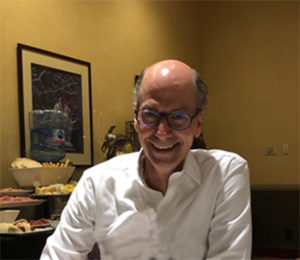Marketing Darwinism: Advaiya has gone through a few stages of evolution, from its beginning. Your GTM is now very clear. Can you describe the changes and how you got to where you are?
Manish Godha: Advaiya started as an eager, nimble group of techies and consultants who have been enthused by technology’s potential to rationalize and transform businesses. We sought and found opportunities for impact and that led us through this journey of evolution. Our initial focus was on helping tech companies communicate the value of their technologies for businesses. This indeed meant that we could bring our skills of business and technology consulting along with marketing in interesting ways; while gaining enormous expertise and experience in the cutting edge technologies in enterprise contexts. The work we did, especially for Microsoft, used approaches grounded in the enterprise architecture concepts within the contexts of newer digital possibilities of transformation. We slowly shifted to the larger marketing and digital marketing needs of businesses, in general. Technology enablement remained our forte, and we were indeed more successful where we could address marketing concerns with data, automation, and web apps. As we worked for tech companies, conglomerates, consumer businesses, e-commerce companies, and service companies, we matured our engagement and delivery processes to better understand business, support business critical workloads and build deeper technical skills on newer enterprise technologies. With these strengths, we refocused on business productivity solutions as relevant to services businesses and service functions within large businesses. We realized that in services businesses customer experience and engagement are intrinsically and directly connected with service delivery and productivity solutions when seen in the context of customer engagement are highly relevant, but most businesses have approached them in a bespoke manner which did not unlock their true value. This is the opportunity that we are geared up today to address, as our unique capability in this regard flows from the many years of work in the fields of enterprise technology, business context mapping, marketing digital and business apps.
Marketing Darwinism: The Technology and Business services you offer a variety of customers are focused on enterprise productivity and adaptation. Does this fall into the category of future-proofing and ensuring that the digital infrastructure exists to grow even in a recession?
Manish Godha: Our services build the digital infrastructure for customer engagement and productivity. These aspects go hand-in-hand and, most obviously in case of services businesses, are core to the business model. Our solutions typically lead to a more resilient customer connection and services delivery. These can be critical for survival and growth of a business. Whether it is about managing leads, building client relationships, organizing field or project service delivery, or analyzing billings and costs, a digital infrastructure can bring the required robustness with efficiencies as well as agility during downturns to be able to offer more relevant client experience, which then becomes foundation for growth. Our services go beyond building and implementing a technology stack, we work with our clients to ensure that the solutions are used well and their employees feel supported and confident. This does unlock the business’s potential to innovate, as the digital, operational and analytical backbone provides the requisite confidence. Our clients have, for example during the pandemic, revamped how they packaged their offerings in no time as they could digitally roll out newer schedules, billing methods and so on.
Marketing Darwinism: How does a great Technology Infrastructure lend itself to a great customer or consumer experience? In other words, when a company has “Advaiya Inside” how does it work with its customers better?
Manish Godha: We realize that customer experience is primarily a consequence of how a business connects and relates with the customer and how it delivers its service—digitally or otherwise. Our solutions address these very aspects directly. The sustained high-quality customer interaction creates a latent capital that yields enormous dividends for the business’s growth. Businesses with integrated and cohesive customer interaction systems move customers more quickly through the sales funnel while providing a favorable brand experience. For example, we help create a fluid and straightforward physical and digital transaction experience which is personalized, comprehensive and responsive. With our solutions for work management and productivity, businesses can also ensure faster delivery, a better after sales service and serve their returning customers better. We help create an insights driven operation which not only provides better experience, but also is more efficient, as better logistics, work management, value chain management—all feed from it.
Marketing Darwinism: Advaiya has had incredible success building both the US market and the Indian domestic market. Few companies can boast of that. Can you share a bit of your secret sauce there? What markets are next for you as you expand your global footprint?
Manish Godha: We depend on our ability to understand our client businesses better and provide exceptional support. We have consciously built these for the US and India markets. We have invested in “local abilities” not necessarily in the sense of physical proximity, but in regards to having deeper and exhaustive understanding of our clients’ business context and environment, and in regards to providing support as relevant to the criticality of the solutions we implement. We have been successful in creating this “nearness” and availability, which have been found invaluable by our clients. This bolsters our technology capabilities and capacity, to maintain those we have stayed similarly near and available to our talent. It has required us to be somewhat focused in terms of geography of our client base, and we see enormous growth potential in the US and India. We plan to further strengthen our service and support capabilities in these markets and expand within.
Marketing Darwinism: You have partnered with companies like Microsoft and have kept abreast of their offerings and changes. What investment areas are you most excited about and what areas will you be doubling-down on in 2023?
Manish Godha: Our partnership with Microsoft has been quite successful with us driving revenues and customer relationships collaboratively in multiple segments. We have built multiple advanced capabilities along with “Gold” level solution partner competencies. This has of course allowed us to be on the leading edge, as regards Microsoft’s business technology offerings. Our solution offerings have evolved accordingly. We believe that Microsoft’s investments in the areas of business applications would be enormously valuable for organizations globally. Specifically, in the areas relating to customer engagement, we believe the Microsoft technologies are amongst the best, and are best suited for organizations across. Whether building a customer data platform or intelligently driving customer interactions, the Dynamics 365 applications and the Power Platform, can help organizations transform themselves digitally rapidly and reliably. These are the areas where we are investing as well, in terms of capacity as well as building integrations and offerings relevant to businesses in our target markets.
Marketing Darwinism: Culture. It plays a huge role in all companies but especially in Tech-focused companies. You have won a series of culture awards- what is your differentiator here?
Manish Godha: Our culture has been a huge advantage for us. We understand that at our scale we get the benefit of being small enough to bring multiple abilities quickly to an engagement and be agile, and at the same time being large enough to have systems and processes to provide continuity, coherence and reliability. These are a direct function of our culture built on our values of being customer centric, having passion for technology, always learning, excellence in work, and most importantly, respect for individuals. We take our values very seriously and that has helped build our culture where our team members are comfortable seeking and providing help to each other, engaging in each other’s pursuits, building deep capabilities, being sensitive to clients’ purposes. We are deeply conscious of the fact that in professional services businesses like ours, it can be difficult for our team members to balance client goals, company goals and personal aspirations. Hence, we try hard to build and maintain alignment with our team members’ individual goals as we organize our teams and projects.






